Automotive Components Industry in India Focuses On Value Addition And Greater Agility
- By Gaurav Nandi
- January 12, 2024
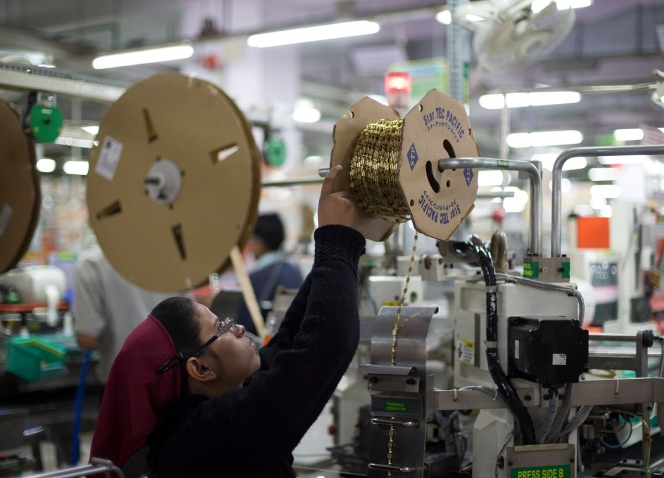
In line with the government's push to make India a key automotive manufacturing hub, the automotive components industry in India is confident that it will export more in 2024.
Focusing on providing more and more opportunities to Indian auto components manufacturers in terms of exports, the Automotive Components Manufacturers’ Association (ACMA) has been helping them to participate in major auto shows the world over. It is also conducting B2B trade fairs such as iAutoConnect which took place in November 2023 in New Delhi, to ensure good international exposure.
Clocking a 12.6 percent Y-o-Y growth in the first two quarters (H1) of FY2024, the Indian auto components industry, informed an ACMA source, is riding on a robust domestic demand as well as concentrating on exports to ensure stronger and sustainable growth.
Reporting sales worth USD 36.1 billion in H1 FY2024 as against sales worth USD 33.9 billion during the same period last financial year, the source mentioned that auto component manufacturers are paying attention to significant value addition by adopting new technologies and bettering their agility to respond to the market requirements in the international as well as the home markets.
Speaking at a press event in Delhi recently, ACMA President Shradha Suri Marwah averred that the auto component industry is mulling over investing around USD 7 billion over the next five years on capacity expansion and technology upgradation mainly because of the robust demand within the indigenous automobile industry,
"The components industry continues to make investments for purposes of higher value-addition, technology upgradation, and localisation to stay relevant to both domestic and international customers. The industry is aiming to invest USD 6.5-7 billion in capex over the next five years as compared to USD 3.5-4 billion spent in the last five years. With good performance in sales across segments of the vehicle industry in the festive season, I am optimistic that the current fiscal year will witness another good performance from the auto components sector," Marwah noted.
Speaking on the growth, she iterated, “As vehicles sales started reaching pre-pandemic levels and supply-chain issues witnessed during the pandemic such as availability of semi-conductors, high input raw-material costs and non-availability of containers were mitigated, the auto components sector witnessed a steady growth in both domestic and the international markets in the first-half of FY2023-24.”
The findings of the apex body indicated that the auto component sales to OEMs in the domestic market stood at USD 30.8 billion registering a growth by 13.9 percent compared to the first half of the previous year. Consumption of increased value-added components and the shift in market preference towards larger and more powerful vehicles continued to contribute to the increased turnover of the auto-components sector.
Moreover, exports of auto components grew by 2.7 percent to USD 10.4 billion in H1 FY2024 from USD 10.1 billion in H1 FY2023. North America and Europe accounted for 33 percent of exports witnessing an increase of 2 and 12 percent respectively, while Asia accounted for 24 percent, witnessed a decline of 4 percent.
The imports grew by 3.6 percent from USD 10.2 billion in H1 FY202-23 to USD 10.6 billion in H1 FY2023-24. Asia accounted for 63 percent of imports followed by Europe and North America, with 27 percent and 9 percent respectively. Imports from Asia grew by 2 percent, from Europe by 8 percent and from North America by 2.5 percent.
The aftermarket also registered a modest growth in H1 FY2024 witnessing sales go up by 7.5 per cent to USD 5.5 billion from USD 5.4 billion in H1 FY2023.
Commenting on the performance of the auto component industry in India, ACMA Director General, Vinnie Mehta, said, “With vehicle sales and exports displaying steady performance, the auto component industry demonstrated a growth of 12.6 percent scaling a turnover of Rs. USD 36.1 billion in the first half of FY 2023-24.
Auto Component supplies to all segments of the industry i.e., to OEMs, exports and also the aftermarket remained steadfast. Exports grew by 2.7 percent to USD 10.4 billion while imports grew by 3.6 percent to USD 10.6 billion. The aftermarket, estimated also witnessed a growth of 7.5 percent. Component sales to OEMs in the domestic market grew by 13.9 percent to Rs.2.54 lakh crore”.
Elaborating on the mood of the industry and outlook for the near to mid-term future, Shradha mentioned, “Going forward, considering the festive season has gone well with significant sales across most segments of the vehicle industry, I am optimistic that the current fiscal year will witness another good performance from the auto components sector. The components industry continues to make investments for purposes of higher value-addition, technology upgradation, and localisation to stay relevant to both domestic and international customers.”
*Image for representative purpose only.
Sterling Tools Partners China’s MINIEYE To Introduce ADAS Solutions In India
- By MT Bureau
- January 19, 2026
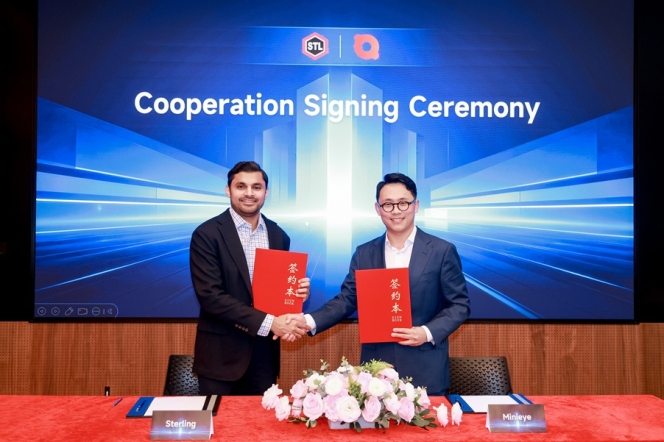
Sterling Tools has entered into a partnership with MINIEYE, a Hong Kong-listed developer of intelligent driving and in-cabin solutions. The collaboration focuses on the deployment of Advanced Driver Assistance Systems (ADAS) and Driver Monitoring Systems (DMS) tailored specifically for the Indian automotive market.
As per the agreement, Sterling Tools will lead application engineering and on-ground adaptation. This involves tuning perception algorithms to account for Indian road scenarios, traffic patterns, and environmental conditions. The project aims to ensure that safety technologies, such as Autonomous Emergency Braking (AEB) and Lane Departure Warning Systems (LDWS), function reliably in local settings rather than relying on global configurations.
The partnership is positioned to meet upcoming Indian safety mandates. Effective 1 January 2027, regulations will require the fitment of ADAS and Driver Drowsiness and Attention Warning Systems (DDAWS) in new vehicle models. The scope of the collaboration covers both commercial and passenger vehicles, including technologies for Forward Collision Warning (FCW) and Blind Spot Monitoring.
MINIEYE provides technology that complies with EU General Safety Regulations and holds Automotive SPICE V4.0 CL3 certification. Sterling Tools is supporting this transition as part of a broader expansion into electronics and safety-critical components, which includes electric vehicle power electronics and motor solutions.
Anish Agarwal, Director, Sterling Tools, said, “Road safety and regulatory compliance are becoming increasingly important across both commercial and passenger vehicle segments in India. This collaboration allows us to work with a global technology partner to address the growing need for driver assistance and monitoring systems that are engineered for Indian operating conditions. At Sterling Tools, our focus remains on supporting OEMs with engineered, safety critical technologies aligned with upcoming regulatory requirements.”
Dr Liu Guoqing, Founder and Chairman, MINIEYE, added, “Partnering with Sterling Tools marks a vital step in bringing intelligent driving to India, leveraging Sterling Tools local expertise to translate technology into production-ready applications that enhance vehicle safety.”
- Front AI Communication Ecosystem
- F.A.C.E
- Faraday Future Intelligent Electric Inc.
- Max Ma
- FX Super One MPV
Faraday Future Details F.A.C.E AI Front Grille System For FX Super One
- By MT Bureau
- January 18, 2026
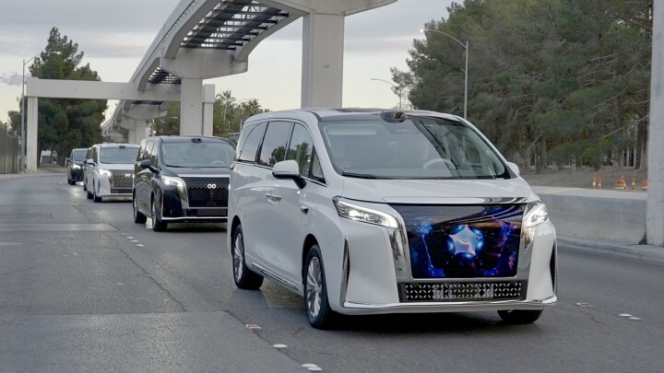
Faraday Future Intelligent Electric Inc. has released technical details regarding the Front AI Communication Ecosystem (F.A.C.E.), a system featured on the electric version of its FX Super One MPV.
The technology replaces the traditional front grille with a display and an AI avatar designed to act as a co-pilot and communication interface.
The system utilises multimodal interaction, including voice, gesture and touch, to respond to user needs. It is controlled via a smartphone application, allowing for the display of custom graphics, logos and streaming video while the vehicle is stationary. The hardware incorporates sensors that enable the AI agent to perceive its surroundings and interact with individuals outside the vehicle.

The F.A.C.E. system uses a Large Language Model (LLM) reasoning layer to interpret user intent and execute actions. Its functionality includes role-awareness personalisation, which distinguishes between owners, family members and unknown persons to provide appropriate responses.
The system supports proactive communication, such as initiating responses when someone approaches the vehicle to improve safety. Users can also interact with the vehicle’s voice assistant from the exterior to check status or request access. The FX Super One platform is engineered to support both battery electric and AI hybrid extended range (AIHER) powertrains.
The FX Super One is positioned as a mass-market MPV for the United States. Faraday Future has established a three-stage delivery structure for the model:
- Phase One: Deliveries to FX Partners are expected to begin in the second quarter of this year.
- Phase Two: B2B partner deliveries and production ramp-up are scheduled for the third quarter.
- Phase Three: Full-scale consumer market deliveries are targeted for the final quarter of this year or the first quarter of 2027.
Max Ma, Global CEO, FX, said, “Offering technology like our unique F.A.C.E system in a new category of vehicle will be a game changer in the marketplace. It will allow users to connect with the world in a totally new way. It can express itself and communicate to the world in a way never seen before in a vehicle. The FX Super One is not just a new MPV, it is the first mass-market, first-class Embodied AI MPV designed for the U.S. market, where intelligent space, AI interaction, sensing, computing and power and extended-range capability come together in a single platform.”
- Schaeffler
- ReDriveS
- German Federal Ministry for Economic Affairs and Climate Action
- Prof. Dr. Tim Hosenfeldt
Schaeffler Leads ReDriveS Project For Electric Axle Drive Recycling
- By MT Bureau
- January 17, 2026
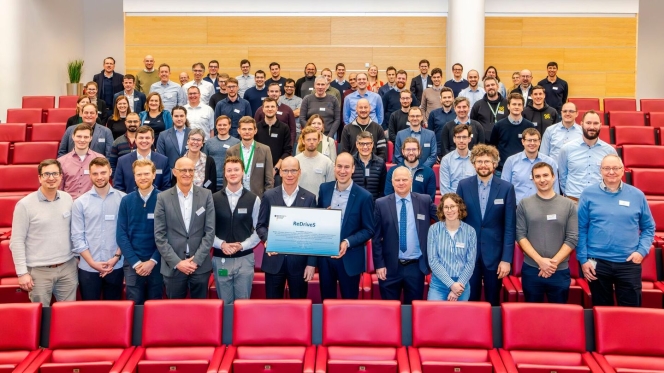
German component supplier Schaeffler is leading the ReDriveS research project, an initiative funded by the German Federal Ministry for Economic Affairs and Climate Action. The project, which includes 25 partners from industry and academia, aims to develop an automated and scalable recycling concept for electric axle drive systems.
The project has a volume of over EUR 25 million, with funding exceeding EUR 16 million over a 36-month period. The technical focus is on robot-guided disassembly to recover materials such as rare earths, copper, aluminium and steel. This approach is intended to support the repair of drives, the reuse of subcomponents, or the recycling of materials to meet statutory requirements and secure supply chains.
A central component of the project is the development of a digital twin that processes data throughout the lifecycle of an axle drive. This digital model assesses the condition and geometry of units to determine whether they should be dismantled into main components – such as the motor, inverter, or transmission – or broken down further for material recycling.
The system is designed to be manufacturer-independent, allowing the technology to be used as an industry solution for original equipment manufacturers (OEMs) and recyclers. The project also explores data-based business models for axle drives enabled by this digital ecosystem.
Prof. Dr. Tim Hosenfeldt, Head of Central Technologies at Schaeffler, said, “With ReDriveS, we are launching a key project for the circular economy in electric mobility as consortium leader, together with the German Federal Ministry for Economic Affairs and Energy and strong partners. Our goal is to make electric axle drives significantly more resource-efficient through digital twins, automated disassembly and high-quality recycling – thereby securing raw materials and supply chains, reducing CO2 emissions, and strengthening Germany as a location overall.”
BYD Extends Blade Battery Warranty To 8 Years Or 250,000km
- By MT Bureau
- January 16, 2026
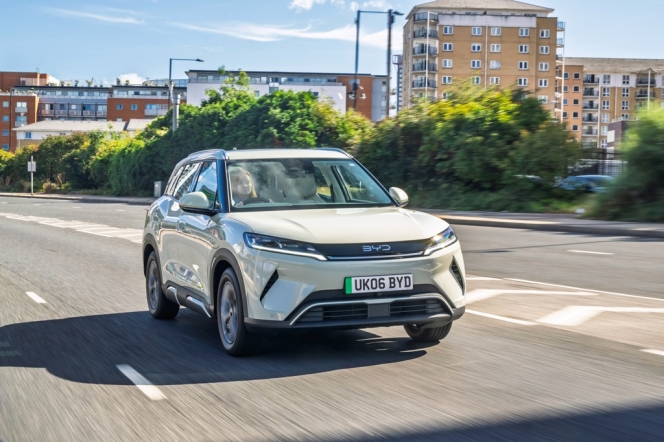
BYD has updated its warranty terms for the Blade Battery in Europe, increasing the mileage limit to 250,000km while maintaining the 8-year duration. The extension applies to both battery electric vehicles (BEVs) and Super Hybrids and includes a guaranteed State of Health (SOH) of at least 70 percent. This change is retroactive, covering existing owners alongside new customers.
The Blade Battery utilises lithium iron phosphate (LFP) chemistry, which avoids the use of nickel and cobalt. Its design allows cells to act as structural elements, increasing the vehicle's torsional rigidity. This configuration reduces the volume occupied by the battery by 50 percent compared to traditional designs, intended to optimise interior space.
The battery has undergone testing, including nail penetration, where surface temperatures remained below 60deg Celsius. It has also been subjected to overcharge tests, oven tests at 300deg Celsius, and crush evaluations. According to BYD, the battery can exceed 3,000 charge and discharge cycles, indicating a service life of approximately 1.2 million kilometres.
Current models utilising this technology include the BYD SEAL, which reports a range of 570km on the combined cycle and the BYD SEALION 7, capable of DC charging from 30 percent to 80 percent in 18 minutes at a power of 230 kW.
Under the new terms, the specific battery cover sits alongside the standard vehicle warranty of six years or 150,000km. The electric drive unit remains covered for eight years or 150,000km, while the anti-perforation warranty continues at 12 years with unlimited mileage. The extension is designed to address user confidence regarding the longevity of energy storage systems in the European market.



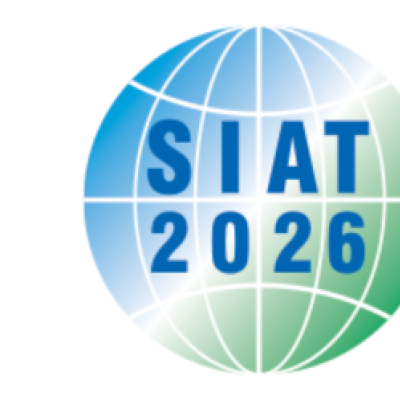



Comments (0)
ADD COMMENT